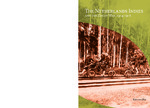The Netherlands Indies and the Great War, 1914-1918
Abstract
World War I had just broken out, but colonial authorities in the Netherlands Indies heaved a sigh of relief: The colonial export sector had not collapsed and war offered new economic prospects; representatives from the Islamic nationalist movement had prayed for God to bless the Netherlands but had not seized upon the occasion to incite unrest. Furthermore, the colonial government, impressed by such shows of loyalty, embarked upon a campaign to create a ‘native militia’, an army of Javanese to assist in repulsing a possible Japanese invasion. -
- Yet there were other problem: pilgrims stranded in Mecca, the pro-German disposition of most Indonesian Muslims because of the involvement of Turkey in the war, and above all the status of the Netherlands Indies as a smuggling station used by Indian revolutionaries and German agents to subvert British rule in Asia.
-
- By 1917 the optimism of the first war years had disappeared. Trade restrictions, the war at sea, and a worldwide lack of tonnage caused export opportunities to dwindle. Communist propaganda had radicalized the nationalist movement. In 1918 it seemed that the colony might cave in. Exports had ceased. Famine was a very real danger. There was increasing unrest within the colonial population and the army and navy. Colonial authorities turned to the nationalist movement for help, offering them drastic political concessions, forgotten as soon as the war ended. The political and economic independence gained by the Netherlands Indies, a result of problems in communications with the mother country, was also lost with the end of the war.
-
- Kees van Dijk examines how in 1917 the atmosphere of optimism in the Netherlands Indies changed to one of unrest and dissatisfaction, and how after World War I the situation stabilized to resemble pre-war political and economic circumstances.
-
- Kees van Dijk (1946) has worked as a researcher at KITLV/Royal Netherlands Institute of Southeast Asian and Caribbean Studies from 1968 to 2007 and has been professor of the history of Islam in Indonesia at Leiden University since 1985. Among his publications are Rebellion under the banner of Islam; The Darul Islam in Indonesia (Leiden, KITLV Press 1981) and A country in despair; Indonesia between 1997 and 2000 (Leiden, KITLV Press 2001).
Keywords
nationalism; europa; netherlands; nederland; indonesie; wereldoorlog i; koloniale geschiedenis; world war i; colonial history; indonesia; economische gevolgen; islamic reform movements; neutrality; nationalisme; political development; economic implications; islamitische hervormingsbeweging; neutraliteit; europe; politieke ontwikkeling; De Locomotief; Dutch East Indies; Dutch language; JavaDOI
10.26530/OAPEN_389234ISBN
9789004260474OCN
1030815602; 794697867Publisher
BrillPublisher website
https://brill.com/Publication date and place
Leiden - Boston, 2007Series
Verhandelingen van het Koninklijk Instituut voor Taal-, Land- en Volkenkunde, 254Classification
History


 Download
Download Web Shop
Web Shop